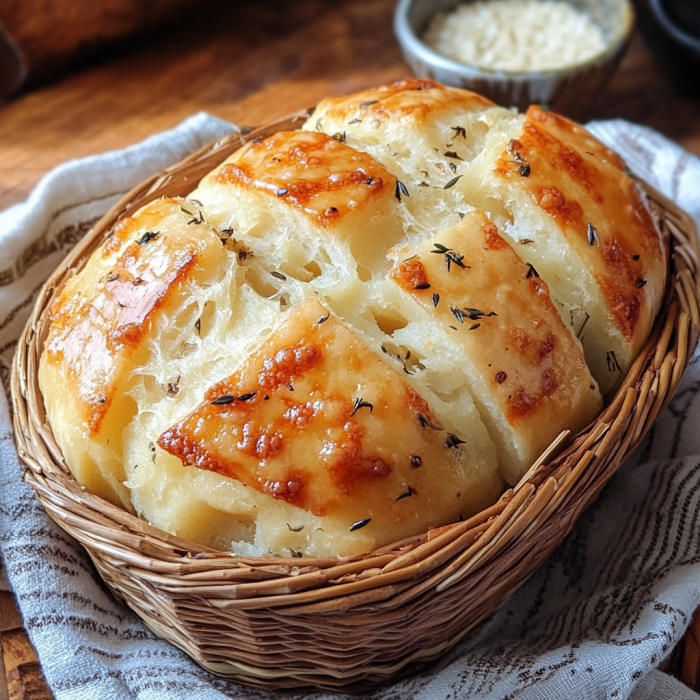Homemade Potato Soup: A Culinary Exploration

Source: tiffanybliss.com
Recipe for homemade potato soup – Potato soup, a comforting classic, boasts a rich history spanning centuries and diverse cultures. Its origins are somewhat murky, but variations have existed for as long as potatoes have been cultivated. From humble peasant fare to elegant restaurant dishes, potato soup’s adaptability makes it a perennial favorite. Making potato soup at home offers control over ingredients, ensuring freshness and a customized flavor profile tailored to individual preferences, surpassing the convenience of pre-made options.
Ingredient Selection and Preparation

Source: inspiredtaste.net
The success of any potato soup recipe hinges on selecting and preparing high-quality ingredients. Freshness is paramount, impacting both the flavor and texture of the final product. The following table Artikels common ingredients and their preparation:
| Ingredient | Quantity | Notes | Preparation |
|---|---|---|---|
| Potatoes | 2 lbs | Yukon Gold or Russet recommended | Peeled, washed, and diced |
| Onion | 1 medium | Yellow or white onion works well | Finely chopped |
| Celery | 2 stalks | Adds subtle sweetness and texture | Finely chopped |
| Carrots | 1 medium | Optional, but enhances flavor and color | Diced |
| Chicken or Vegetable Broth | 6 cups | Use low-sodium broth for better flavor control | Ready to use |
| Milk or Cream | 1 cup (optional) | Adds creaminess to the soup | Ready to use |
| Butter or Olive Oil | 2 tbsp | For sautéing vegetables | Ready to use |
| Salt and Pepper | To taste | Seasoning is key | Ready to use |
While various potato types can be used, Yukon Gold potatoes offer a creamy texture and subtle sweetness ideal for soup, whereas Russet potatoes provide a fluffier consistency. Fresh vegetables, such as carrots and celery, contribute essential vitamins and a depth of flavor that canned alternatives lack. Similarly, fresh herbs like thyme or rosemary enhance the overall aromatic complexity.
Soup-Making Techniques

Source: sonerijobs.com
Achieving the desired consistency in potato soup requires careful technique. Here are three variations:
- Creamy Potato Soup:
- Sauté diced onions, celery, and carrots until softened.
- Add diced potatoes and broth; simmer until potatoes are tender.
- Blend a portion of the soup until smooth for creaminess.
- Stir in milk or cream, season, and serve.
- Chunky Potato Soup:
- Follow the same steps as Creamy Potato Soup, but skip the blending step.
- Leave the potatoes in larger chunks for a heartier texture.
- Consider adding cooked bacon or ham for extra flavor.
- Broth-Based Potato Soup:
- Sauté vegetables as above.
- Add potatoes and broth; simmer until potatoes are tender.
- Season generously with herbs and spices. Avoid adding cream.
- Serve with a dollop of sour cream or yogurt for added richness.
Achieving the desired consistency involves adjusting the amount of broth and the blending technique. Proper sautéing involves cooking vegetables over medium heat in butter or oil until softened but not browned, releasing their natural sweetness.
Flavor Variations and Enhancements, Recipe for homemade potato soup
Potato soup’s versatility shines through its endless flavor combinations. Experimentation is key to discovering personal preferences.
- Bacon and Cheddar
- Roasted Garlic and Thyme
- Smoked Sausage and Caraway
- Leek and Gruyere
- Mushroom and Parmesan
Spices like paprika, cumin, and nutmeg complement the earthy notes of potatoes. Herbs such as rosemary, thyme, and chives add depth and aroma.
Optional additions can further personalize the soup:
- Various meats (ham, bacon, sausage)
- Different cheeses (cheddar, Gruyere, Parmesan)
- Croutons
- Chives or green onions
Serving Suggestions and Storage
Potato soup pairs well with a variety of side dishes to create a complete meal.
- Grilled cheese sandwiches
- Fresh bread
- Side salad
Leftover soup should be stored in airtight containers in the refrigerator for up to 3 days. Reheating can be accomplished gently on the stovetop or in the microwave, ensuring the soup doesn’t scorch or become overly thick. Stirring frequently during reheating helps maintain a smooth consistency.
Visual Representation of the Recipe
A visually appealing bowl of potato soup showcases a harmonious blend of colors, textures, and aromas. Imagine a creamy, golden-hued soup, possibly speckled with flecks of green from chives or herbs. The surface might be subtly textured, perhaps with a swirl of cream or a sprinkle of cheese. The aroma should be warm, inviting, and subtly savory, with hints of herbs and spices.
A garnish of freshly chopped chives or a swirl of crème fraîche adds a touch of elegance and visual interest. The overall impression should be one of rustic comfort and refined flavor.
Crafting a delicious homemade potato soup often involves simple ingredients and techniques. For a unique twist, consider incorporating crispy hash browns; a fantastic recipe showcasing this can be found here: potato soup recipe with hash browns. Adding these adds a delightful textural contrast to the creamy soup, elevating your homemade potato soup to the next level.
FAQ Resource: Recipe For Homemade Potato Soup
Can I use leftover cooked potatoes?
Yes, leftover cooked potatoes work well, just ensure they are well-mashed before adding them to the soup.
How long can I store leftover potato soup?
Store leftover soup in an airtight container in the refrigerator for up to 3-4 days.
Can I freeze potato soup?
Yes, potato soup freezes well. Allow it to cool completely before freezing in airtight containers for up to 2-3 months.
What kind of potatoes are best for creamy soup?
Russet or Yukon Gold potatoes are ideal for creamy potato soup due to their high starch content.
What can I do if my soup is too thick?
Thin the soup with additional broth or milk/cream, stirring until desired consistency is reached.
